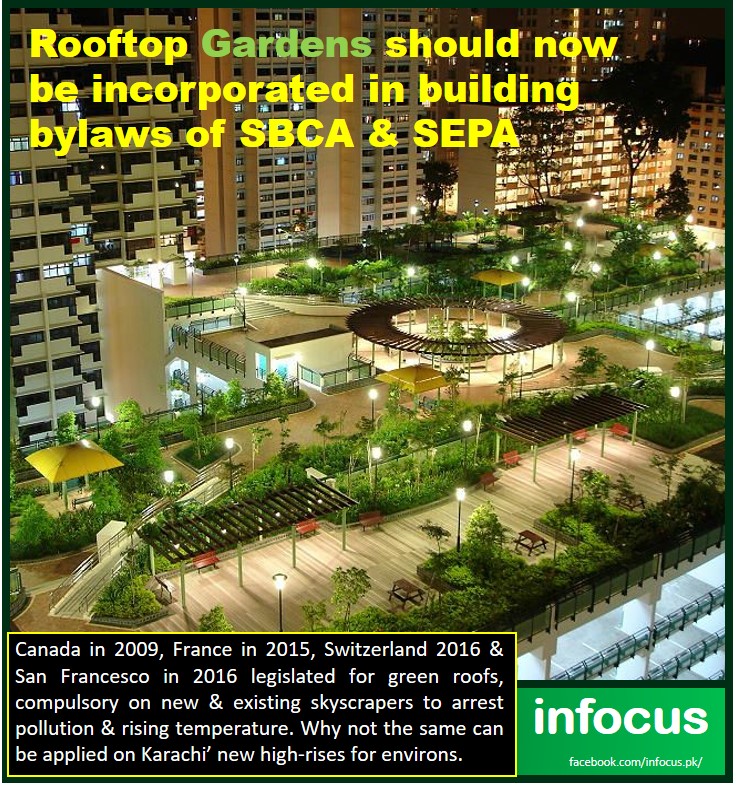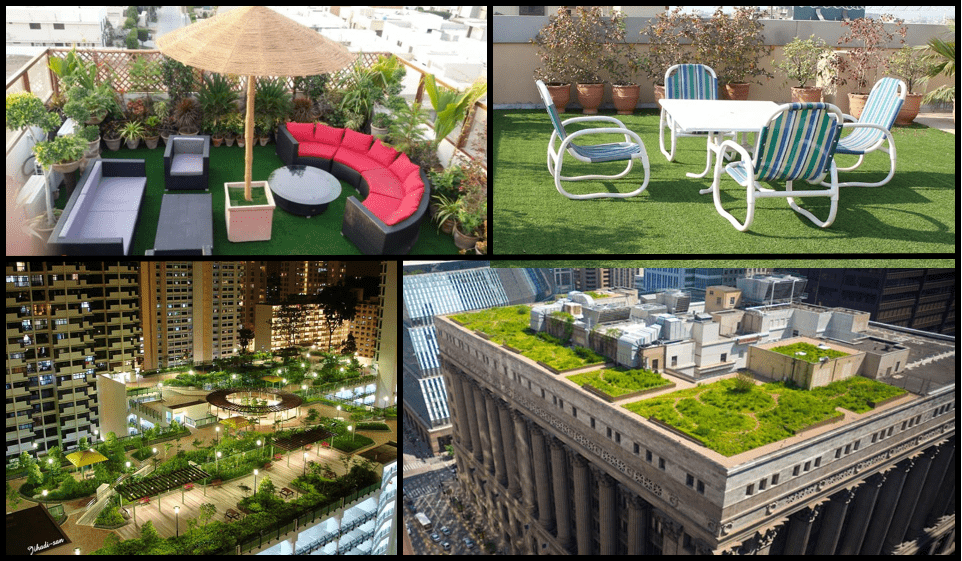Afforestation within cities is nowadays widely recognised as a way to improve air quality and reduce overall heat, but lack of space and overpriced land makes it difficult to increase the number of parks and natural space. This is when rooftop gardens come into the picture and is the reason why they have become more and more popular over recent years, particularly in larger and more developed cities.
Published in the journal Sustainable Cities and Society, a recent research by climate scientists from New York’s NASA’s Goddard Institute for Space Studies states that rooftop gardens or “green roofs” filled with plants and greenery reflect the sun and can alleviate some of the extreme city heat.
Urban Heat Island
The Urban Heat Island, which means that temperatures are often 10 degrees higher in cities, is a serious concern for urban planner and environmentalists. As global heating intensifies, urban heat islands are expected to as well, which means green roofs have become more important. Because plants have the ability to reduce the overall heat absorption of the building which then reduces energy consumption for cooling. As a result of transpiration, plant surfaces do not rise more than 4–5 °C above the ambient and are sometimes cooler, that then translates into a cooling of the environment between 3.6–11.3 °C, depending on the area on earth.
The primary cause of heat build-up in cities is the absorption of solar radiation by roads and buildings in the city and the storage of this heat in the building material and its subsequent re-radiation. Countries such as France, Switzerland, and Canada have all passed laws regulating and demanding that all new commercial and residential buildings have at least a partly green rooftop.

Environmental Benefits of Rooftop Gardens
Rooftop gardens look good, have a great view, and provide a smart and quick way to enjoy a quiet retreat in the heart of the city. But beyond their decorative benefits, there are many other impressive and important advantages to building rooftop gardens.
Improved Air Quality
Rooftop gardens contribute to the reduction and filtering of polluted air particles and gases, not only through the plants and the photosynthesis process but also by deposition in the growing space. Green roofs may also help reduce the distribution of dust in the air and the production of smog, which leads to decreasing greenhouse emissions in urban areas.
It is important to note, however, that one green roof in a city may not have a huge effect all on its own, but larger numbers of roofs in a city could have a noticeably positive impact.
Effective Use of Rainwater
Rain is free water and energy we get from the environment, and rooftop gardens are perfect to make the most of it. Plants in rooftops not only retain rainwater but also help to moderate its temperature, acting as natural filters for any water that runs off the building. The chances of water runoff, however, is also decreased by rooftop gardens, reducing the impact this may have on the city and the possibility of local flooding.
Control on Urban Heat Island effect
Probably one of the most impressive and important benefits of rooftop gardens is how they positively affect the Urban Heat Island effect. The concept is based on the increased temperature levels found in pretty much all urban areas. Because the sun warms up concrete and asphalt faster than it does plants and trees, and because concrete is more abundant in urban areas, the city becomes a big hot-aired area (heat island) all year round. This makes cities extremely hot in summer, leading to an increased use of air conditioners and other cooling technologies.
This effect decreases with the more green spaces we incorporate in a city. Through the daily evaporation cycle, plants are able to cool down entire cities, reducing the UHI effect. Moreover, the plants themselves will be covering what would have otherwise been a concrete rooftop, one of the main causes of UHI itself.
Energy Efficiency
Rooftop gardens can also lead to less and more effective use of energy. They provide great insulation, retaining heat in winter and keeping temperatures cool in summer. This translates into less air conditioning systems being put to work in summer and less heating used in winter, hence the conservation of energy and subsequently money.
Urban Farming
With rooftop gardens comes another environmentally friendly and booming initiative – urban agriculture. This involves using green roofs as miniature farms that actually produce fresh food. The practice of cultivating food on the rooftop of buildings and houses is sometimes also referred arooftop farming, which is usually done using hydroponics or container gardening techniques.
By
Editorial, Infocus


